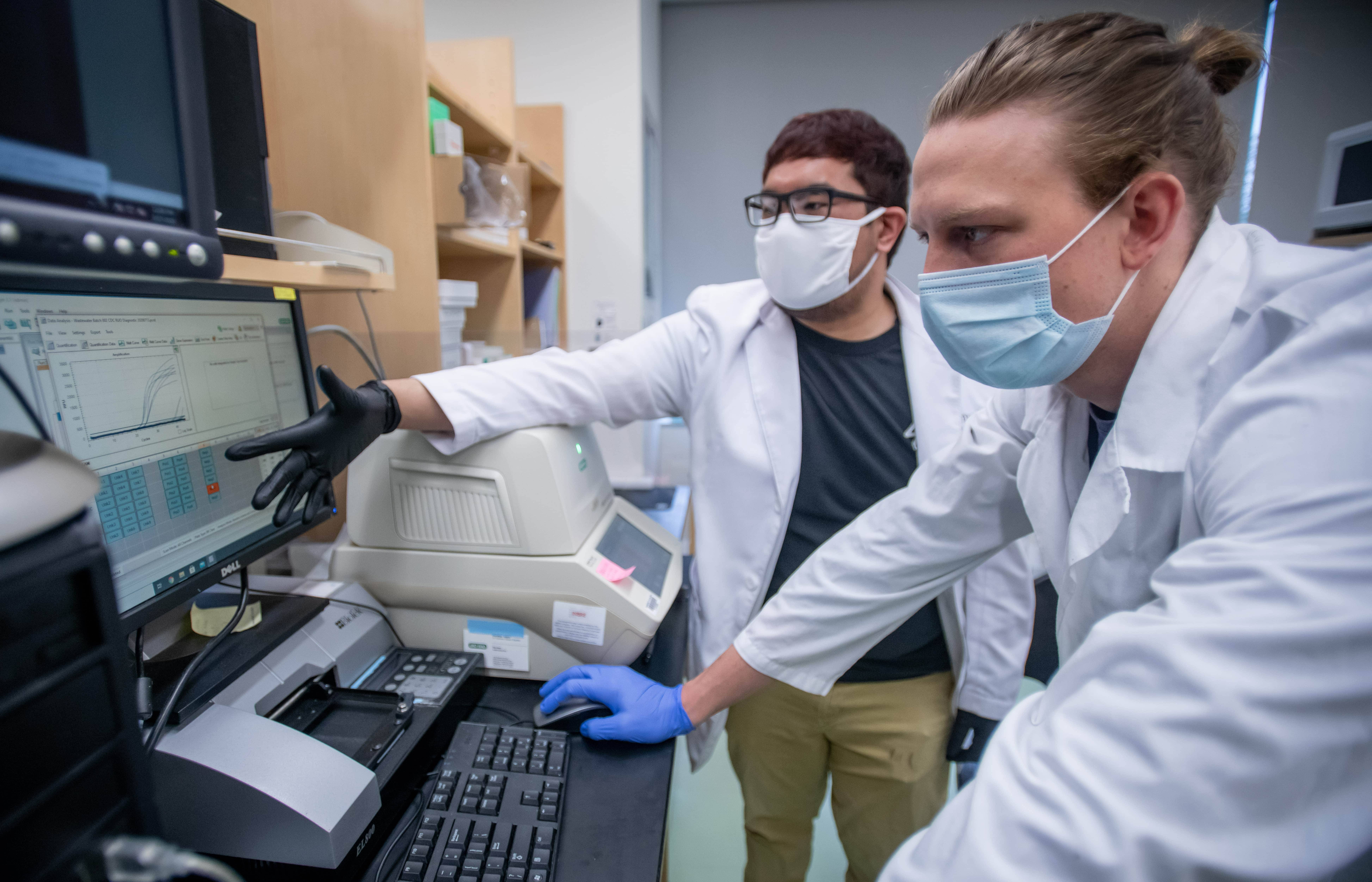Undergraduate Studies

Undergraduate Academic Advising
Visit the Academic Advising website to find your advsior, schedule a meeting, or learn more about the program.
If you have questions about the Biological Sciences program, contact the Academic Advisors for the College of Arts and Sciences. Walk-ins are welcome, but appointments are strongly encouraged.
- B.A. Biological Sciences
- B.S. Biological Sciences
- B.S. Natural Sciences
- Minor in Neuroscience
- Fermentation Science Occupational Endorsement Certificate
Bachelor of Arts in Biological Sciences
The B.A. in Biological Sciences is a popular choice for students who are interested
in a career in areas such as wildlife management or environmental law and is often combined with a minor in a discipline such as Psychology, History, Alaska
Native Studies, History, English, a Foreign Language or Music.
The B.A. in Biological Sciences is also popular with pre-medical students who wish to acquire and demonstrate academic skills and interests that extend beyond
the pure sciences.
Program Student Learning Outcomes
Students graduating with a Bachelor of Arts or a Bachelor or Science in Biological Sciences will be able to:
- Demonstrate an understanding of the core concepts in the biological sciences: evolution; structure and function relationships; information flow; exchange and storage; transformation of energy and matter.
- Apply the process of science and construct knowledge through observations, experimentation, quantitative reasoning and hypothesis testing.
- Read, analyze and synthesize primary literature, and communicate scientific concepts and data in written and oral form.
Bachelor of Science in Biological Sciences
Students must choose either the Biological Sciences, or Microbiological Sciences Option.
The B.S. in Biological Sciences is a popular choice for students who are interested in pursuing careers in biological research as it provides strong preparation for relevant graduate school programs such as an M.S. in Biological Sciences or a PhD. The B.S. in Biological Sciences is also a good choice for students who are interested in moving directly into a biological or environmental career.
This B.S. in Biological Sciences Is also a popular choice for pre-medical, pre-dental and pre-veterinary students as combining the degree requirements with the relevant professional school pre-requisites is relatively straight forward and as it enables these students to demonstrate interest and ability in a relevant discipline.
Program Student Learning Outcomes
Students graduating with a Bachelor of Arts or a Bachelor of Science in Biological Sciences will be able to:
- Demonstrate an understanding of the core concepts in the biological sciences: evolution; structure and function relationships; information flow, exchange and storage; transformation of energy and matter.
- Apply the process of science and construct knowledge through observations, experimentation, quantitative reasoning and hypothesis testing.
- Read, analyze and synthesize primary literature, and communicate scientific concepts and data in written and oral form.
Bachelor of Science in Natural Sciences
Students must choose either the Environmental Sciences or Pre-Health Professions Option.
The BS in Natural Sciences is a flexible degree program for students interested in careers in biological or environmental sciences, in biomedicine, or who wish to apply to medical, veterinary, dental or pharmacy school. Its flexible nature has made it popular with a wide variety of Science students, and it is often combined with a minor in a second discipline such as Psychology, Physics or Mathematics. The B.S. in Natural Sciences is also a popular choice for students interested in pursuing careers in STEM teaching at the secondary school level, as the breadth of the program provides them with the qualifications and skills that they need to obtain and to excel in such positions.
Program Student Learning Outcomes
Students graduating with a Bachelor of Science in Natural Sciences will be able to:
- Design and implement scientific investigations to explore natural phenomena using experimentation, which includes exploration and discovery, and testing ideas (gathering and interpreting data)
- Clearly and accurately communicate scientific ideas, theories, and observations in oral and written forms
- Apply scientific data, concepts, and models to craft interdisciplinary explanations of scientific ideas across two of the natural sciences
Minor in Neuroscience (New!)
This interdepartmental/multidisciplinary minor is designed to give students a foundation in the many different fields of neuroscience. This minor takes an integrative approach to prepare students for careers in neuroscience in order to meet workforce demands within academia, medicine, industry, government and legal services.
A total of 18 Credits is required for the minor.
For more information regarding this minor, please contact Dr. Christopher Jung.









